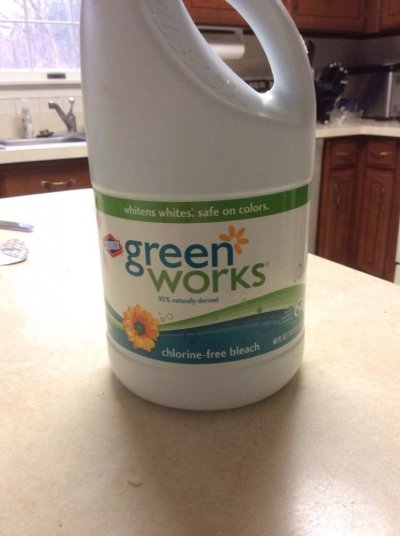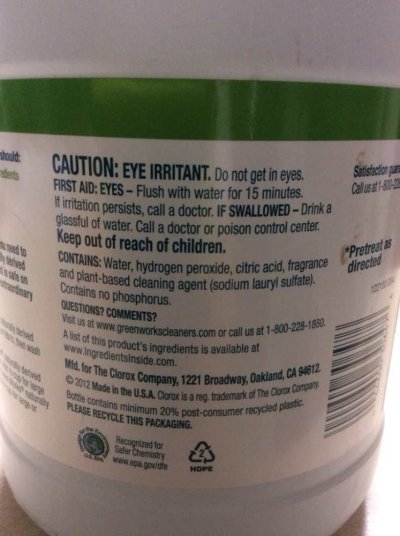Products today that say they bleach, but are chlorine free, are usually based on Hydrogen peroxide, like your product is. Hydrogen peroxide isn't bad for tanks, not toxic, it breaks down very quickly into the same molecules water already has. Often used to dip plants to kill algaes.
The problem, as Mebbid pointed out, is the added detergent.. sodium lauryl sulfate. It makes the product foam up, helps remove greases, and is NOT anything you want in a tank. I would do just what Mebbid said, rinse, rinse, rinse and then sit in a bucket and run a filter with activated carbon for at least a week, to be sure the sodium lauryl sulfate is gone. SLS is found in a bewildering array of products, including toothpastes, shampoos, virtually all liquid soaps, lotions, etc.
Chlorine bleach also breaks down fairly fast. Chlorine gasses off into air quickly, being very volatile, leaving only the sodium part behind. Thorough rinsing and drying is all that's needed, or soaking in water with double dose of dechlorinator also works.
Btw, hydrogen peroxide has been used as a bleaching agent for a very, very long time. It used to be the way you bleached hair blonde, and it works extremely well on many common stains on clothes and objects. By itself at low concentrations it's pretty much harmless, aside from maybe bleaching something you spill it on accidently, but it's not nearly as basic as chlorine bleach is, so it does less damage to fibres in clothing. Also less load on the environment when it does break down.




